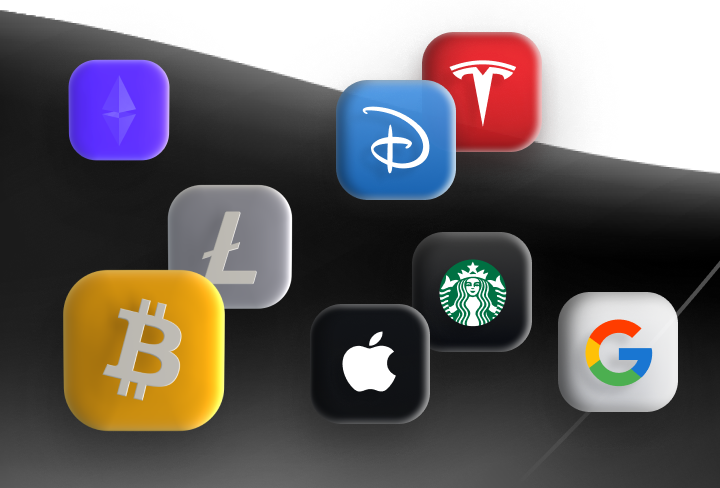What are financial instruments?
If you participate in the financial markets, you will be trading various types of financial instruments. This page covers everything you need to know about financial instruments, and how to choose the ones best suited to your objectives
What is a financial instrument?
A financial instrument is a physical or digital document or contract that signifies ownership of an asset or a contractual right to receive something. Financial instruments can be created, modified and traded.
Financial instruments are typically tradable. Just how easily they can be traded depends on liquidity and the amount of information available.
An example to help define financial instruments
If you have a contract to buy or sell something, but you cannot sell the contract, it is not a financial instrument. If you can sell the contract, it is probably a financial instrument.

Types of financial instruments
Financial instruments can be categorized in two ways. Firstly, they represent either equity, debt or a currency. Secondly, they are either primary (cash instruments) or derivative instruments. The following is a list of examples categorized according to whether they are primary or derivative instruments.
Primary financial instruments
Primary instruments are also known as cash instruments. They represent actual ownership of an asset or the right to a future cash flow.
Shares
Shares are also known as equities and stocks. A share represents ownership of a percentage of a publicly listed company. Shareholders have certain rights, including a claim on assets if the company is liquidated, the right to receive dividends and the right to vote on important company matters.
ETFs (Exchange Traded Funds)
Strictly speaking, ETFs are a type of share and they are traded just like the shares of listed companies. However, ETFs indicate partial ownership in a portfolio of securities, rather than in a single company.
Bonds
Bond are long term debt instruments with maturities of more than one year. Governments, municipalities and companies issue bonds to raise money in the form of debt. A bond has a face value which is due to the holder when the bond matures, and a coupon which reflects the interest that is paid to the holder each year.
Money market instruments
Money market instruments are similar to bonds but have maturities shorter than one year. There are lots of different types of money market instruments, including commercial paper, certificates of deposit, repurchase agreements, banker’s acceptances, and treasury bills.
Cash
Currencies are also regarded as financial instruments. They are recorded on balance sheets at face value, or in another currency. Cash is the most liquid form of financial instrument.
Other basic financial instruments
Some other items that are listed on company balance sheets are also classified as financial instruments from an accounting standpoint. These include trade debtors, trade creditors and bank loans.
Derivative financial instruments
Derivatives are financial instruments that derive their price in some way from other financial instruments or assets. Some derivatives are relatively simple, while exotic derivatives are very complex.

Futures
A futures contract is a contract between two parties to exchange cash or other securities on a future date and at an agreed upon price. Futures contracts are traded on exchanges and have standardized terms that dictate the quantity of the underlying asset, the expiry date and the method of exchange.
Options
An option gives the holder the right, but not the obligation to buy or sell an underlying asset at a specific price, on a specific date in the future.
Options are traded on exchanges and in OTC (over the counter markets)
Forwards
Forwards are like futures contracts but are not traded on exchanges and don’t have standardized terms. Forwards are traded in the OTC market, usually between institutions and corporations.
CFDs (Contracts for Difference)
CFDs are similar to futures but are traded in the OTC market between brokers and their clients. Unlike futures which have expiry dates, CFDs are rolled forward each day until closed. CFDs are settled for cash.
Swaps
A swap is an agreement to exchange cash flows based on foreign exchange rates, interest rates, or equity returns. Swaps are traded in the OTC market between banks, institutions, and corporates. They are frequently used by institutions and corporations to hedge currency and interest rate exposure.
Convertible instruments
Convertible instruments can be converted from one type of instrument to another if or when certain conditions are met. The most common of these are convertible bonds that can be converted to shares.
Why to trade with Libertex?
- access to a demo account free of charge
- technical assistance to the operator 5 days a week, 24 hours a day
- leverage up to 1:500
- operate on a platform for any device: Libertex and Metatrader 4 and 5
- no commissions for extractions in Latin America




